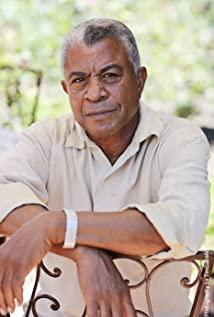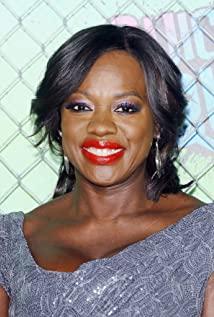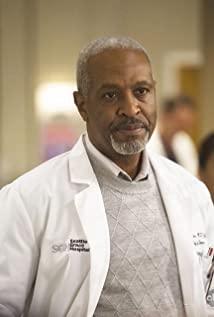The five stories then continue on their own: Robert's ambitious preparations to start his own anti-drug work are viewed negatively by Randley, the last anti-drug officer; Javier, at General Salazar's request, sets a trap for a Tijuana gang killer When she was brought to Mexico, she watched the killer being tortured by the military with mixed feelings; Caroline reunited with her friends again, and her classmate Baoman suffered a sudden shock because of an overdose of drugs. Go; two anti-drug police officers controlled Ruiz to testify in court on the condition of being exempted from punishment; Helena’s husband was arrested by the police, and Helena was surprised to learn through her lawyer Ani that the business her husband had been engaged in turned out to be drug smuggling.
Then, various lines began to gradually converge, and each character began to connect, and the plot gradually changed from fragmentation to the whole:
Robert's anti-drug work was difficult to do, and the increasing amount of drugs and the difficulty of investigation and control made him feel stressed and full of hope. Going to Mexico to negotiate was unsuccessful because of General Salazar's negative attitude towards drugs and the silence of other officials; Caroline's drug use was discovered by Robert, and after a big quarrel, Caroline was forcibly sent to rehab However, the uncontrollable drug addiction prompted Caroline to escape from the rehab and rely on aid exchanges in exchange for drugs; the
killer was forced to provide Salazar with the address of the organization, and the Tijuana gang was thwarted. Javier and his companions accidentally meet Marigo, who was supposed to die from plastic surgery, and they learn that Salazar has been working for the Juárez Gang. The companion did not abide by the confidentiality agreement with Javier, and prepared to inform for the high bonus. Unexpectedly, he fell into the trap of Salazar. Javier could only watch his friend get killed.
After her husband was imprisoned, Helena was helpless in the face of huge debts, and her son David was also threatened. Helena, who had borrowed money by all means to no avail, began to try to take over her husband's drug trade and hired him twice. The killer wants to get rid of Ruiz, a key witness against her husband in court, but accidentally kills the DEA officer Ray.
The intricate character stories gradually converge, and then comes the end of the net, which once again condenses every branch that has been unfolded before. At the end, each character has a more obvious change compared to the beginning: Robert found his daughter who was assisted by drugs. , after several entanglements at the press conference, he publicly resigned and returned to Ohio to accompany his daughter to detoxify with his wife; Javier finally made up his mind to report Salazar's true identity to the United States, eliminating Salazar's influence in Mexico and becoming the Mexico's anti-drug hero; Helena successfully found someone to get rid of Ruiz before the trial, and reunited with her husband. At the two's party, a black police officer from the Drug Enforcement Bureau installed a bug in Helena's house.
The film ends with an open ending. The bugs installed by black police officers have left plenty of room for imagination. Maybe the fight between the police and drug lords will continue like this forever.
Overall, the film adopts a cross-narrative approach. At the beginning, each small story seems to be independent of each other, but as the plot unfolds further, you will find innumerable connections among them. Like the butterfly effect, "drugs" invisibly link each character to each other, restraining each other, just like the small nodes in the big net, and finally they come together to form a picture. Huge drug network.
The cross-narrative of the movie makes the protagonist no longer exist. Here are a few of the more important characters.
① Justice Robert
Robert left a distinct impression from the very beginning: integrity, self-confidence, ability, and most importantly, his aversion to drugs. The first court scene showed his position directly.
Then it showed Robert's confidence in his future anti-drug work in many ways, showing his firmness in preparing for a big job, such as the scene where he looked at the White House from a hotel when he first arrived in Washington.
And when the previous consul hinted that he wouldn't last long, Robert still didn't care and was full of confidence in himself.
The strong self-confidence created at the beginning is in stark contrast to the difficulties and blows that Robert faces in his later work. Robert began to understand that anti-drug operation is not enough just to have confidence and perseverance. The interests contained in drugs and its huge circulation will make anti-drug operations difficult.
For example, before going to Mexico to negotiate, the embarrassment of consulting other officials on the plane but no one cares.
Mexico is an important source of drug circulation in the United States, but there is no special anti-drug organization in Mexico at all. Robert had hoped that this trip to Mexico would bring about greater improvement, but General Salazar's tough attitude and indifference to drugs made the conversation between the two deadlocked again.
Outside work went nowhere, but the most fatal blow to Robert was the drug addiction of his daughter, Caroline. As a national anti-drug leader, Robert had a drug-addicting daughter at home, which made him unacceptable, and even at the beginning of the doctor's questioning, he couldn't tell the truth that he didn't want to believe.
After that, he was busy with anti-drug work again and never asked about his daughter's drug use. However, Caroline's drug addiction became more and more serious. It was not until Robert found her drug-taking tool in the bathroom that he really realized the seriousness of the matter and decided to put her daughter. Sent to a rehab center for detoxification.
At this time, Robert, who was already in trouble at home and abroad, learned of the news of his daughter's disappearance and searched for it together with Caroline's boyfriend Seth. He came to a black man's door to inquire but was viciously warned by the other party.
Robert was frightened by the soft and hard black tenants. This is a place he is completely unfamiliar with. Even though he is always in court and even received by the president in person, when the gun touches his neck, he still feels soft. Without telling the law here, Robert lost his most useful weapon, his daughter became his biggest weakness, and he was powerless to resist all this. Robert put down the dignity of the judge and began to deeply feel his insignificance and powerlessness in the drug world.
What happened next became the key to Robert's resignation at a later press conference. Robert finally finds Caroline and finds that his daughter is relying on an aid exchange in exchange for drugs. Robert sobbed on top of his unconscious daughter after taking drugs.
At the final press conference, after several hesitations, Robert made a decision that surprised everyone and resigned.
The shot shows Robert making up his mind through several pauses and eye contact with other officials.
Robert's several hesitations before resigning also showed the fierce ideological struggle in his heart. He didn't want to live up to his previous ambitions, how could he be willing to surrender so easily to drugs; but thinking about what happened to his daughter, he felt that he could no longer be selfish and hostile to his relatives because of official business, and finally personally put the most important people Push off the cliff. After some thought, sensibility prevailed over rationality. So even on such an important occasion, he can still say "I can't do it" to all the media, and then leave the mess behind him and go home to accompany his daughter to detoxify. Robert made a choice amid the contradictions. He chose to return to ordinary life, to return to family life, and to accompany his relatives to tide over the difficulties.
Robert is a very real image, who appears righteous and awe-inspiring. He wants to make great achievements in his new job with a fighting spirit. He has gone through many attempts and failed. He has his own self-esteem, but he is also afraid, helpless, and overwhelmed when he encounters uncontrollable things. Relatives are armor and weakness, and Robert's final choice shows the important power of family love in life.
②
The beginning of Helena's movie shows Helena's pampered identity through a lunch meeting between friends. The husband is a well-known businessman in Colombia. The two also have a lovely son. They live a carefree life. It is not difficult to see the power and status of the Helena family from the flattery of everyone. The stark contrast to the avoidance of friends and neighbors is even more ironic.
However, Helena has no idea what the real business her husband is doing. After the police arrested Helena's husband from the home in front of everyone, Helena didn't even expect her husband to be linked to drug trafficking. At this time, Helena hadn't left the environment she used to rely on. The sudden change caught her off guard, and she could only rely on her and her husband's common friend, Ani.
When Helena learned from Ani that her husband was in the drug business, she experienced a series of emotional changes from "shock" → "grief" → "fear" → "thought".
The first blow that the sudden change brought to Helena was the great change in the surrounding environment. The family's economic situation is in crisis, and her rich life is facing changes, all of which can only be borne by her alone. In addition, the neighbors and friends who seemed to be very close to her hurriedly distanced themselves from her, and Helena saw the true face of indifference. She was no longer the rich lady that everyone envied and flattered before, and she began to gradually collapse.
But Helena is still a stubborn person after all. She is reluctant to accept the cruel reality in front of her, and desperately wants to return to the happy life before, and even wants to create a beautiful growth environment for her son. Facing empty promises from her husband in prison, Helena decides to change herself.
However, Helena was dealt a more fatal blow soon after. The gangster's killer has threatened Helena's son, David, because of her husband's huge debt and gang affair. A child is always a mother's bottom line, and Helena knows she can't wait any longer and must act now. This incident became a turning point for Helena's complete change.
Helena is very smart, she knows that the police have been monitoring her, but relying on her own strength alone cannot protect her son David until three million is raised. On the one hand, she used the power of the police to protect her son's safety, and on the other hand, she began to borrow money everywhere. But the so-called company before her husband was just a tool for money laundering, and borrowing money from friends became nonsense. Helena fell into crisis and panic again.
Later, Helena ushered in an opportunity. She suddenly remembered the portrait that her husband reminded her when she was visiting, and discovered some mysterious codes hidden by her husband. Helena knew that these codes must be related to the drug trade, but it was not easy for Helena to take over her husband's drug business. Not to mention that she didn't know anything about this field before, she has even become a key surveillance target of the police and gangsters. The harsh reality gave Helena almost no time to think and hesitate. She wanted to return to her past life. So far, she had no choice but to do so. She had to venture into this illegal realm that she once feared. The possibility of continuing to live.
With no one to rely on anymore, Helena began to learn to be independent. In order to save her husband, she hired a killer to take the lives of key witnesses before the trial. The matter of human life is at stake, but what Helena said seemed to have nothing to do with herself, indifferent, ruthless, and calm.
After the murder failed, Helena went to Mexico alone to negotiate with the gang boss, which once again showed Helena's extraordinary intelligence and calmness. The other party is a big drug lord who kills without blinking an eye, but Helena did not show the slightest timidity during the confrontation. She can't let the other party see the flaws, and she can't let the other party see that she just took over the drug business as a last resort, because only on the condition that both parties are equal, she is qualified to negotiate with the other party to maximize the benefits. She pretended that she still had a lot of ways to go, created the illusion that she didn't care about your source of goods at all, took advantage of the greed of drug dealers, offered benefits at the right time to lure the other party, and finally put forward her own three conditions. The whole process was smooth, perfect and well-designed, and Helena at this time was already different from before.
In the ending, Helena finally got her wish and rescued her husband, and the two returned to their previous lives. However, the monitor installed by the black police officer at the end also meant that Helena's future life was not destined to be peaceful.
In general, Helena is more like a victim of the drug world. Her transformation happened passively as a last resort, stemming from her instinct as a mother and wife to protect her family, destined to accept the ups and downs of life when she decided to get involved.
Unlike most people who are pampered, Helena has experienced a bad past, so she still has tenacity, bravery and unyielding explosiveness hidden in her heart, as well as the courage to change desperately for her loved ones. Helena is very smart. She knows how to take advantage of the people around her. She doesn't easily believe or follow blindly. This talent allows her to deal skillfully with the seasoned and slick drug lord. These are all innate qualities of Helena, and she is destined to have an extraordinary life.
The use of color tones in the film is also quite ingenious.
①The part of Mexico is mainly shown in dark yellow.
The beginning of the movie is a suburban road, and the dark yellow color makes the whole picture appear rougher, like an old-fashioned documentary, making the whole environment look more desolate and harsh. Dark yellow also makes the city appear more crowded and chaotic.
The dark yellow hue makes people feel anxious and uneasy.
There is a daily visible drug trade here.
Even cars can be lost on the road.
There are all kinds of torture.
There is an assassination of a client.
It's a gathering place for all kinds of gangs.
There are also corrupt military high-levels.
The entire film uses dark yellow to construct a crisis-ridden Mexico.
③ The Ohio part is mainly presented in cool blue tones.
Cold blue gives people a gloomy, icy, mysterious feeling. For example, the small apartment at the beginning is a place where a group of teenagers gather to take drugs. The cold blue shows the psychedelic and the cold attitude of bystanders brought to the parties by drugs, which makes the scene of a group of young people drunk and dreaming to death even more shocking. Cold blue also highlights the corruption of drugs on people's spiritual world.
Ohio is full of drugs, the drug trade can be seen everywhere, and in some neighborhoods, people will sell drugs to you when you drive by:
cold blue also renders Robert's tense family relationship: the
film uses cold blue to build a drug-ridden, fragmented Ohio, outlines the outsized impact of drugs on an average family.
View more about Traffic reviews











